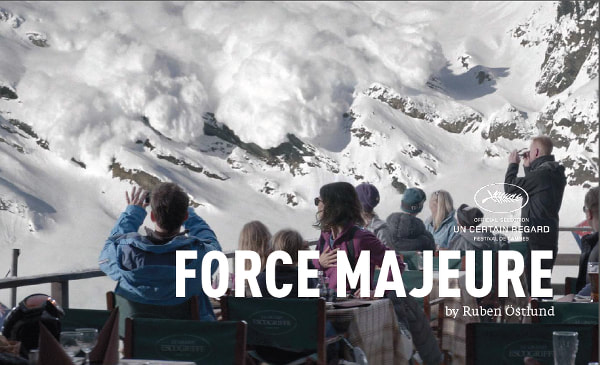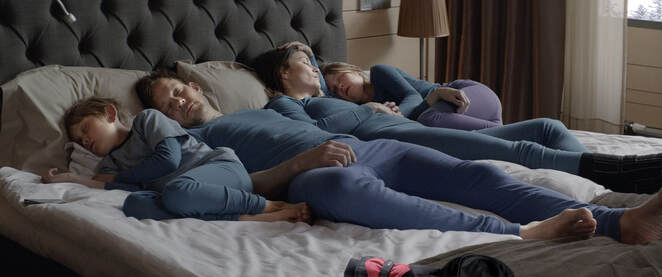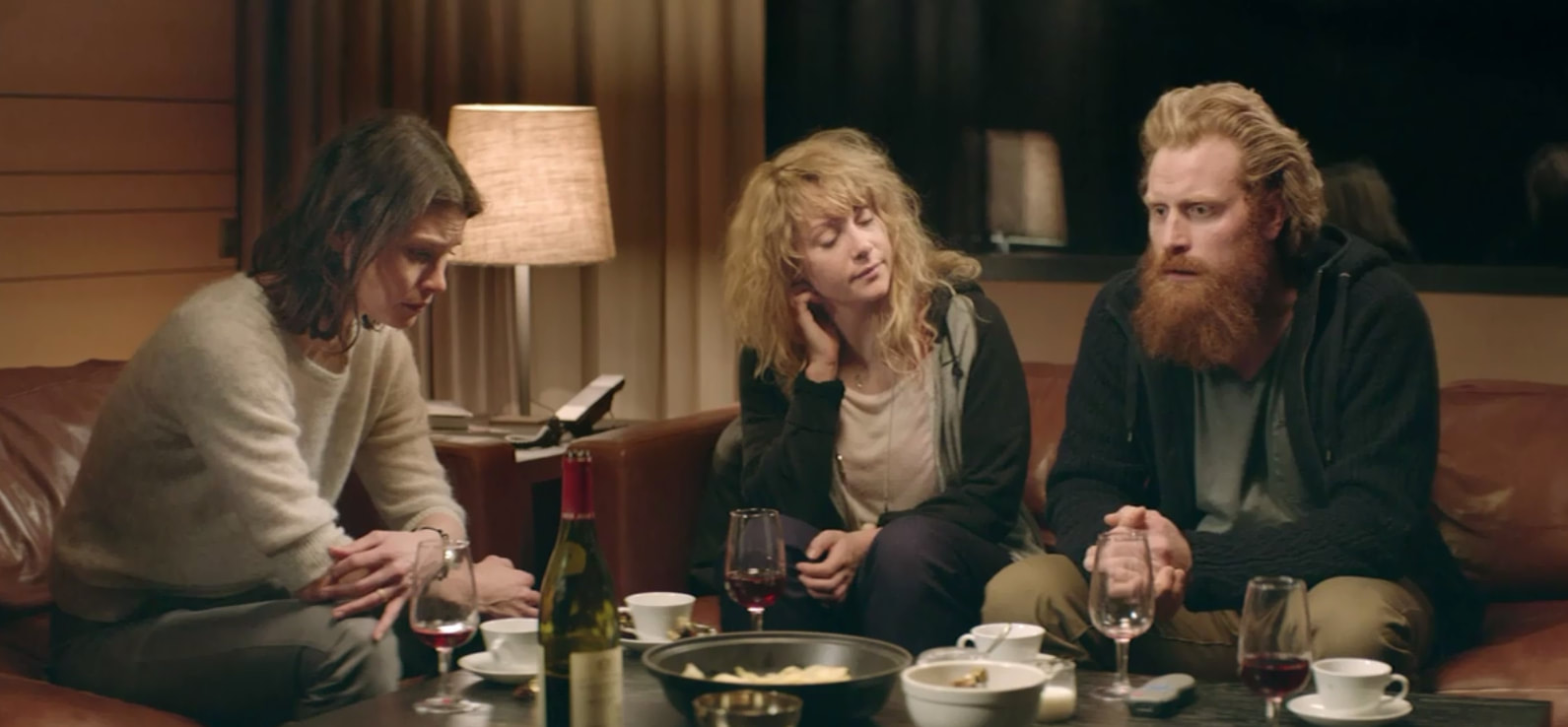The movie’s structure shows what the filmmakers view as important, as the key scene of action occurs only 30 minutes through the runtime of the film. The movie is not about the avalanche itself, but how that avalanche affects the different characters and their relationships between each other. Th avalanche scene is hugely important, but not climactic. The main conflict of the film revolves around Tomas’ selfishness and cowardice during this moment, as Ebba is distraught to see her husband not prioritize herself and his children in a disaster situation. The conflict is escalated further by Tomas’ refusal to admit the truth of the situation, insisting that he did not run, that he could not have run. He is ashamed of his own weakness, and breaks down later in the movie due to his own self-hatred, regressing to a toddler-like state of wailing. This emotional immaturity is shared by Ebba, albeit in a different way. Rather than throw a tantrum, she pretends he doesn’t exist for a short time, then acts coldly to him without communicating her hurt to him. In fact, rather than talk to him directly about her feelings or concern, Ebba instead brings it up for the first time at a dinner with another couple, grilling and humiliating him in front of others. After they discuss it in private, she then does the same thing again in front of a different couple out of anger that Tomas won’t admit what happened. Both Tomas and Ebba refuse to act like adults and resolve the situation, but instead choose to hurt each other and maintain their own pride.
Tomas and Ebba’s situation only begins to improve through the advice and help of one of their friends, Mats, who is present at the second dinner that they fight through. Mats tries to be a reasonable neutral party, consoling both Tomas and Ebba. To Ebba, he explains that in survival situations such as the one that they experienced, your ‘fight-or-flight’ system is triggered, and that it is impossible to know what one would really do in such a circumstance until it's been lived through. To Tomas, he reminds him of the importance of ensuring your own safety first before being able to help others, such as when the air pressure in a plane cabin drops. It is during this conversation that Mats brings up his views on heroism that comprise the central theme of the film.
“I believe that the enemy is the image we have of heroes. All these stories about heroes. And the pressure to be a hero and do heroic acts in terrible situations. But the truth is, when reality is staring you in the face, and you’re afraid to die, very few of us are heroic.” (Force Majeure)
The end of the movie does have something of a redemptive arc for Tomas and Ebba, but this too is far from the heroism of Hollywood. When the family goes on one last ski run together in thick fog, Ebba gets separated and lost, presumably injured. Tomas runs off into the swirling snow and fog to find her, and returns carrying her triumphantly, for a moment suggesting some kind of heroic change for Tomas. However, this scene is immediately undercut by a sense of awkwardness. The reunited family just stands there and looks at each other for a few seconds before Ebba gets up and walks back into the fog to get her skis, seemingly unharmed, and the scene abruptly ends. Even after a brave rescue, there is no illusion of heroism. Instead, we are offered the film’s familiar awkwardness of reality.
The next and final scene of the family’s bus ride home offers us a reminder that even these faint glimmers of heroism are only temporary. As the bus driver dangerously lurches his way down the mountain, Ebba demands to get off the bus. She is the only voice saying out loud what most of the bus seems to be thinking, that the bus is unsafe and needs to be stopped. She looks several times to Tomas to support her, but he stays silent. When the doors open, the bus erupts into pandemonium, with people yelling and rushing to get out. It is Mats again who ends up being the closest thing to a hero, getting everyone’s attention and telling them to calm down, helping people off the bus, while Tomas still stays silent. Mats’ captain-like order for the women and children to get off first brings to mind the example he used earlier in the film of the MS Estonia. According to him, only 137 people survived out of 850, and these survivors had to trample over dead bodies and knock down children in order to live. This is the example he uses of a survival situation where it is impossible to tell what one might do in order to survive, yet when faced with disaster himself (albeit a much, much smaller one), he is able to maintain his cool and help others while Tomas is useless yet again. This does not appear to go unnoticed by Ebba, who asks Mats, not Tomas to carry their daughter. It is important to remember, however, that despite Mats’ ability to display some level of heroism, he is far from idealized as a character or made to be special.
By the end of the film, we are left with an assorted cast of complicated characters. Some are likable, some are detestable, some can even be admired. All of them, however, are flawed, and none of them possess any traits that would separate them from the ordinary people that we all have in the cast in our own lives. Both main characters are portrayed as unhero-like as possible through their actions, yet they are no closer to being villains. They are petty, awkward, and angry, yes, but they are also loving to their children, willing to help each other, and committed to their relationship. In short, they are people, nothing more, nothing less. While Tomas and Ebba might not fit the Hollywood ideal of the heroic protagonist, that does not make them, or Force Majeure, any less important.




 RSS Feed
RSS Feed
